#Marguerite et Faust
Text
Hot Vintage Stage Actress Round 1
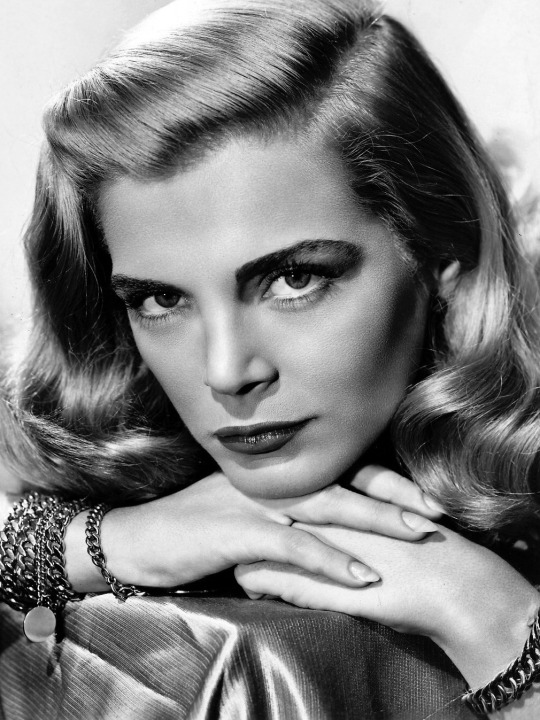
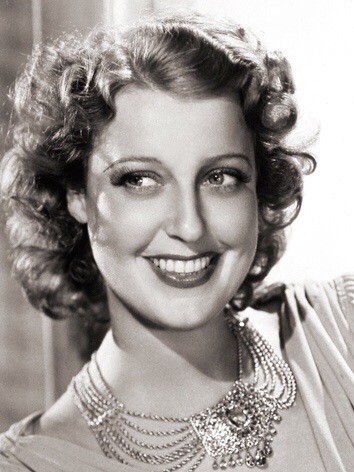
Lizabeth Scott: Sadie Thompson in Rain (1942 Off-Broadway); Sabina understudy in The Skin of Our Teeth (1942 Broadway); Sabina in The Skin of Our Teeth (1943 Boston); Anna Lucasta in Anna Lucasta (1949 New Jersey and Connecticut)
Jeanette Macdonald: Iris Bellamy in The Magic Ring (1923 Broadway); Juliette in Roméo et Juliette (1943 National Tour US); Marguerite in Faust (1944 National Tour US)
Propaganda under the cut
Lizabeth Scott:
She’s sooooooooo fucking hot I want to have sex with her soo badly. Everything about her, her voice, her smile, the little way she looks up from under her eyelashes, her little smirk. I’m insane for her




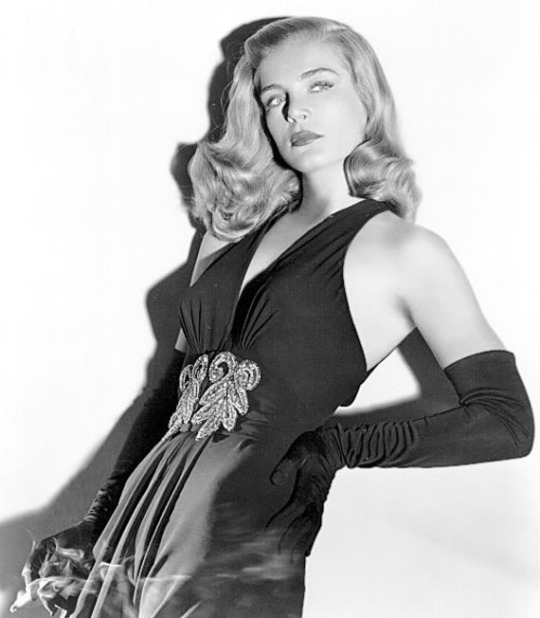
Jeanette Macdonald:
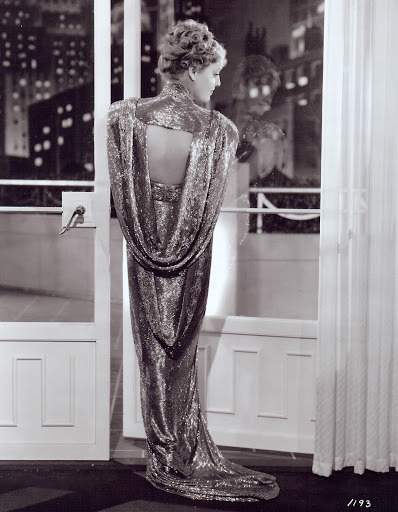



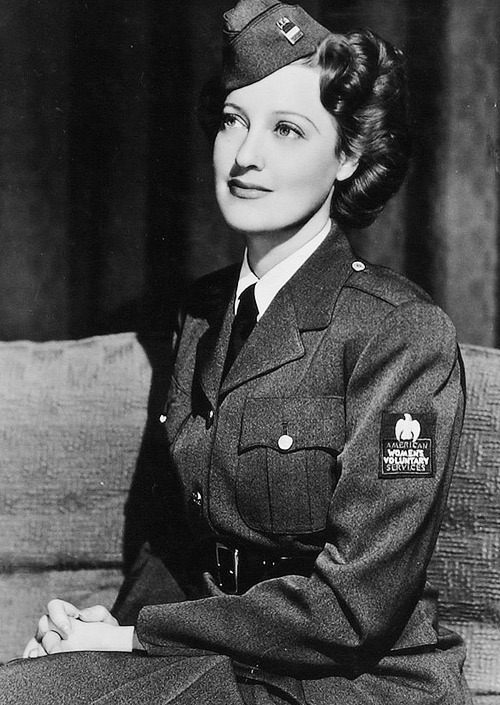
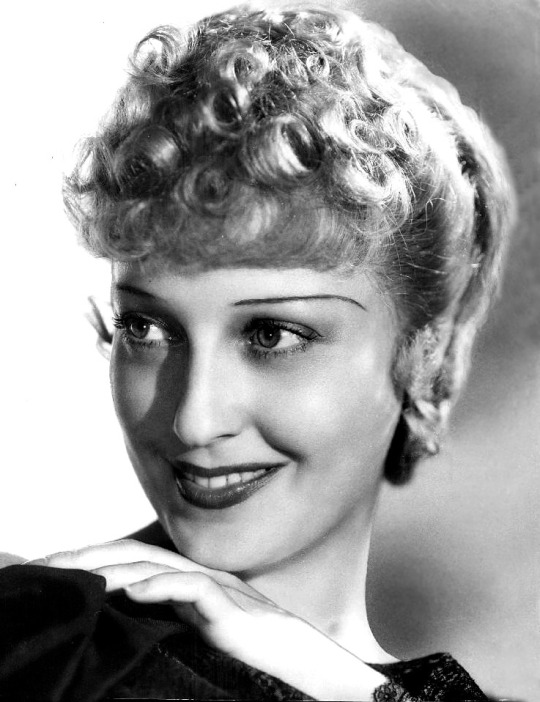
#vintagestagehotties#vintagestagepoll#vintage tournament#vintage poll#lizabeth scott#jeanette macdonald#ladies round 1#vintage ladies
16 notes
·
View notes
Text
Dread by the Decade: Faust and Marguerite
👻 You can support me on Ko-fi ❤️

★
Plot: The devil tells Faust to behead Marguerite, but he refuses.
Review: An incomprehensible narrative is brought down further by a bad set and over-reliance on substitution splices.

Source Material: Faust et Marguerite by Michel Carré
Year: 1900
Genre: Occult
Country: United States
Language: Silent
Runtime: 57 seconds

Director: Edwin S. Porter
Writer: Edwin S. Porter
Cast: Unknown

-----
Story: 0.5/5 - Totally incoherent.
Performances: 1/5 - Stiff performances, void of the theatricality.
Effects: 3/5 - The substitution splices are poorly utilized.
Sets: 1.5/5 - The set looks like poorly painted cardboard.
Costumes, Hair, & Make-Up: 3/5
youtube
#Faust and Marguerite (1900)#Faust and Marguerite#Edwin S. Porter#occult#Dread by the Decade#review#1900s#★
7 notes
·
View notes
Text
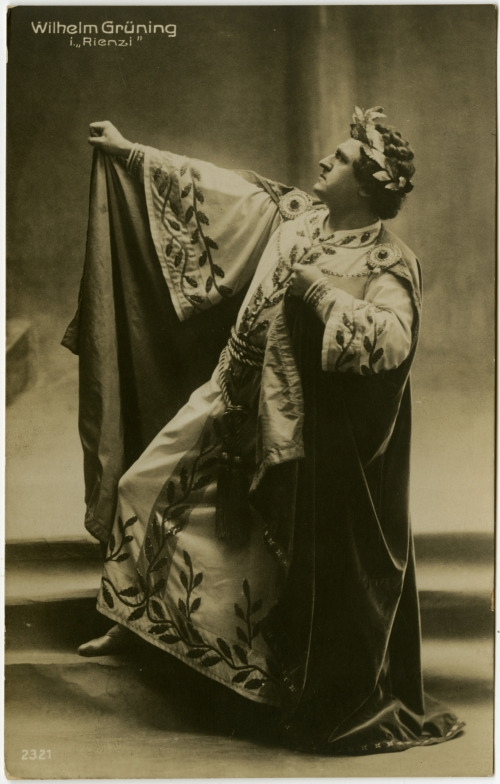
Wilhelm Grüning (1858-1942) German tenor.
He made his debut (1881) in Danzig. He spent most of his career at the Hannover Opera and the Berlin Imperial Opera.
He was the son of a Berlin jeweller. He studied singing in Berlin under Julius Stern and Jenny Meyer and made his debut in 1881 at the Stadttheater in Gdansk as a lyric tenor, however, his voice changed about 1885 to the heroic tenor. From Gdansk he joined in the 1883-1885 seasons to the Opernhaus in Dusseldorf, then sang in the 1885-1887 seasons at the Deutschen Theater in Rotterdam. From 1888 to 1895 he appeared at the Hoftheater in Hannover, in the 1895-1898 seasons at the Stadttheater in Hamburg. In 1898 he joined to to the Hofoper in Berlin, where he remained till 1911. From 1891 to 1897 he appeared at the Bayreuth festival as Parsifal, Tannhäuser, Siegfried and Walther von Stolzing in ‘’Die Meistersinger von Nürnberg’’. His creation of the title role in R. Wagner’s ‘’Rienzi’’ counted at his time as an incomparable achievement. In 1899 he appeared at the Berlin Hofoper in the premiere of the (posthumous) operas ‘’Briseïs’’ of E. Chabrier, ‘’Cain’’ (1900) by E. d’Albert, ‘’Samson et Dalila’’ (1901) of C. Saint-Saëns, ‘’Der Pfeifertag’’ (1902) by M. von Schillings (after premiere in 1899 at the Hoftheater in Schwerin). He appeared as Faust in C. Gounod’s ‘’Faust’’ in a performance in which Geraldine Farrar made her debut at Berlin as Marguerite (15. 10. 1901). On 13. 12. 1904 he performed at the Berlin Hofoper in the unsuccessful premiere of the opera ‘’Der Roland von Berlin’’ by R. Leoncavallo. On 21. 3. 1899 he sang there also in the premiere of A. Lortzing’s opera ‘’Regina’’ (48 years after the death of the composer!). He made guest appearances in London and Amsterdam and in the 1895-1896 season sang with the Damrosch Opera Company in the USA. Probably he retired from the stage in 1911 and was active in Berlin as vocal pedagogue. Married to the known dramatic soprano Antonie Mielke (1856-1907).
At the latter he sang in the unsuccessful world premiere of Der Roland von Berlin.
#Wilhelm Grüning#Grüning#lyric tenor#tenor#Heldentenor#dramatic tenor#opera#bel canto#chest voice#aria#maestro#classical singer#classical music#music history#operatic tenor#operatic singing#opera singer#operatic singer#classical singing#singing#singing teacher#pedagogue#classical studies#Bayreuth festival#Rienzi#Richard Wagner#Wagner#composer#classical composer#heroic tenor
17 notes
·
View notes
Photo



Welcome to the 21st installment of 15 Weeks of Phantom, where I post all 68 sections of Le Fantôme de l’Opéra, as they were first printed in Le Gaulois newspaper 114 yeas ago.
In today’s installment, we have Part V of Chapter 8, “Où MM. Firmin Richard et Armand Moncharmin ont l’audace de faire représenter « Faust » dans une salle « maudite » et de l’effroyable événement qui en résulta” (“Where MM. Firmin Richard and Armand Moncharmin Have the Audacity to Have ‘Faust’ Performed in a ‘Cursed’ House and the Horrifying Event Which Thereby Ensued”).
This section was first printed on Tuesday, 26 October, 1909.
For anyone following along in David Coward’s translation (the link is to the Kindle edition on Amazon US), the text starts in Chapter 8 at, “When Marguerite finished singing the ballad of the King of Thule, she was given an ovation,” and goes to the end of the chapter, “Two Hundred Thousand Kilos Land on Concierge's Head!' It was her only epitaph.”
There are some differences between the standard 1st Edition text and the Gaulois text. In this section, these include (highlighted in red above):
1) This sentence was added in the 1st Edition, and did not appear in the Gaulois (indicated by the red arrow above):
Car vous pensez bien qu'il ne faut parler de crapaud qu'au figuré. On ne le voyait pas mais, par l'enfer ! on l'entendait. Couac !
Translation:
You must understand, of course, that we are only speaking of a toad in the figurative sense. It could not be seen, but by the devil, it could be heard! Couac!
2) Compare the Gaulois text:
"Elle chantait cela sans effort" ("She sang this effortlessly")
To the 1st Edition:
"Elle chantait sans effort" ("She sang effortlessly")
3) Minor differences in punctuation.
ALSO NOTE:
I) "Couac" is a French onomatopoeic word meaning a wrong or discordant note. It sounds roughly like the English word, "quack." (Coward strangely translates this word as "skaark" — I have no idea why.) Note though that "couac" is not an onomatopoeia for a toad's croak, or a duck's quack for that matter. In French, a toad's sound is "côa côa" and a duck's sound is "coin-coin." (An animal whose onomatopoeic sound is "couac couac" is the crow or raven — "caw caw" in English.) The French do however have the phrase, "avoir un crapaud dans la gorge," which is the equivalent of the English phrase "to have a frog in your throat," and is the idea that Leroux was playing with in describing the sounds that Erik was projecting over Carlotta’s voice.
II) Leroux "borrowed" this description of Carlotta's voice (highlighted in blue above) from Le Nouvel Opéra: Monument - Artistes, by X.Y.Z. (i.e. "Anonymous"). This was the same source he used to develop Christine Daaé's backstory (based on Christine Nilsson's history), as well as the source of his description for Carlotta's voice earlier in this chapter (based on the description of Gabrielle Krauss). In this section, he has again drawn from Christine Nilsson's biography, except here he's used it to describe Carlotta's voice. Here is the paragraph that he used:

III) Leroux took the headline announcing the chandelier accident from the newspaper, Le Matin, where he had been working as a journalist at the time. On 20 May, 1896, during a production of Hellé, a counterweight from the chandelier (not the whole chandelier) fell into the auditorium and killed a concierge named Mme Claudine Chaumet.
Of course, being Leroux, he significantly exaggerated the weight of the chandelier debris, increasing its mass from five hundred kilos, to two hundred thousand kilos! (And that said, if the whole chandelier, weighing several tons, had crashed into the auditorium, it would have killed more than one person!)
Here is a link to the article in Le Matin on 21 May, 1896. Below is an image of the headline that ran in Le Matin, announcing the accident:

Click here to see the entire edition of Le Gaulois from 26 October, 1909. This link brings you to page 3 of the newspaper — Le Fantôme is at the bottom of the page in the feuilleton section. Click on the arrow buttons at the bottom of the screen to turn the pages of the newspaper, and click on the Zoom button at the bottom left to magnify the text.
#phantom of the opera#gaston leroux#le fantôme de l’opéra#le gaulois#phantom translation#15 weeks of phantom
31 notes
·
View notes
Text
The Phantom of the Opera

How many monsters are there supposed to be in Rupert Julian et al’s THE PHANTOM OF THE OPERA (1925, TCM, Tubi, Plex, YouTube)? In its time, it was viewed as another in a series of films casting Lon Chaney as sympathetic horrors. His famous makeup for the film and the number of victims he claims (though the chandelier sequence goes light on the battered bodies) would point to him as the monster. But from a contemporary viewpoint Christine (Mary Philbin), for all her physical beauty, is pretty horrible in her own right. She has no problem accepting Chaney’s help with her career, rejects a wealthy suitor (Norman Kerry) who wants her to retire and goes off with the Phantom after he’s dropped a chandelier on the audience to protest her not performing in FAUST that night. But after the unmasking, she not only wants nothing to do with him but goes back on her word to stop seeing the blandly handsome Kerry. She may not kill people, but she’s something of a soul killer. When Chaney orders her to “Feast your eyes! Glut your soul on my accursed ugliness!” he might as well be holding up a mirror.
Universal’s adaptation of the Gaston Leroux novel is something of a mixed bag. Whenever Chaney’s off-screen it drags, and some of the performances bear out the stereotypes about silent film acting. Much of Chaney’s pantomime, however, is exquisite, and the underground scenes as he takes Philbin to his hidden quarters beneath the Paris Opera have an eerie poetry. Part of the problem is Julian, whose main claim to fame was stepping in to replace Erich Von Stroheim after the master director was fired from MERRY-GO-ROUND (1923). Until the final chase scenes, his cutting is almost lethargic, and most of his compositions seem static. One minor triumph, whether it's his work or just casting, is the contrast between the Paris Opera’s star (Virginia Pearson), who’s fleshy and grandiose as Marguerite, and Philbin, who plays the role with a disarming simplicity. Philbin is rather good overall, as is Arthur Edmund Carewe as a mystery man skulking around the opera house and Gibson Gowland (later the star of GREED) as a stagehand whose brother the Phantom murders. And whatever else you may think of the film, the production values, particularly the marvelous opera house set and the masked ball shot in two-strip Technicolor, are pretty darned impressive.

0 notes
Link
Check out this listing I just added to my Poshmark closet: Berlioz La Damnation De Faust Chicago Symphony Orchestra Import CD.
1 note
·
View note
Text
Le style de Montserrat Caballé est une combinaison de l'intimité de l'acte même de chanter et de grandes passions
une célébration d'émotions fortes et pourtant très tendres et pures, elle a toujours été dans une jouissance joyeuse et sans péché de la vie, de la musique, de la communication avec les gens et la nature. Elle a dû mourir de nombreuses fois sur scène : Violetta, Madame Butterfly, Mimi, Tosca, Salomé, Adrienne Lecouvreur. Ses héroïnes sont mortes d'un coup de poignard et de consomption, de poison ou d'une balle, mais chacune d'elles a été donnée pour vivre ce moment unique où l'âme se réjouit, remplie de la gloire de son dernier envol, après lequel aucune chute, aucun trahison de Pinkerton, plus aucun poison ne craint Princesse de Bouillon. Quoi que Caballe chante, la promesse du paradis est déjà contenue dans sa voix même. En 1965, à l'invitation personnelle de Rudolf Bing, Caballe fait ses débuts au Metropolitan Opera (New York), où elle interprète le rôle de Marguerite dans Faust. Elle se produit ensuite sur la scène du Metropolitan Opera jusqu'en 1988. Parmi les meilleurs rôles joués sur la scène du célèbre théâtre : Louise dans Louise Miller, Leonora dans Il trovatore, Violetta dans La Traviata, Desdemona dans Otello, Aida, Norma dans l'opéra du même nom de Vincenzo Bellini. Au théâtre La Scala, elle a interprété Lucrezia Borgia, Mary Stuart, Norma, Louise Miller, Anne Boleyn.
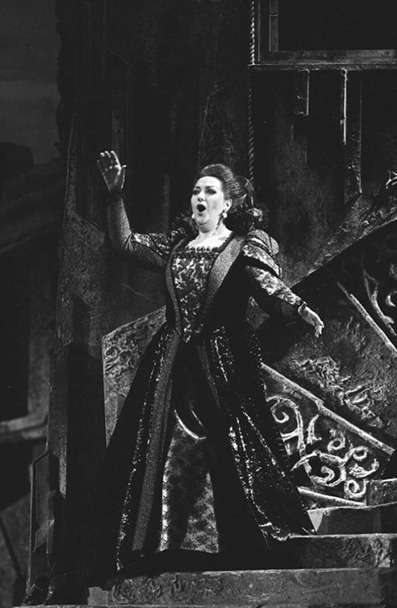
#musique#loisirs#influencedelamusique#joie#plaisir#faitsintéressants#xpoken#musique2022#musiquepourl'âme#musiquepourlavoiture
0 notes
Text

Marguerite on the Sabbath
Pascal Dagnan-Bouveret
oil on canvas, 1911
#Pascal Dagnan-Bouveret#art#artist#painter#Marguerite on the Sabbath#Faust#oil on canvas#Marguerite et Faust#1911
174 notes
·
View notes
Text
Okay so it turns out that William Tell was actually my second graduation present and this was intended to be the first one (I had sent her the link for it when she asked me what kinds of books I liked) but she misplaced it for a bit and gave it to me today. I'm just kind of overwhelmed because she's so nice and thoughtful and I already love this so much I'm just going crazy nerding out and I can hardly believe that I'm holding this in my hands right now




#i just can't get over how lucky i am seriously#what did i do to deserve working with this family#i am so so psyched to get into this play omg#and it's like photocopies of an original book so that's so cool!!!#plays#drama#Faust et Marguerite#Faust and Marguerite#Michael Carré#Carré my beloved
8 notes
·
View notes
Text
Music in Gaston Leroux‘s “The Phantom of the Opera“ - The original Phantom soundtrack
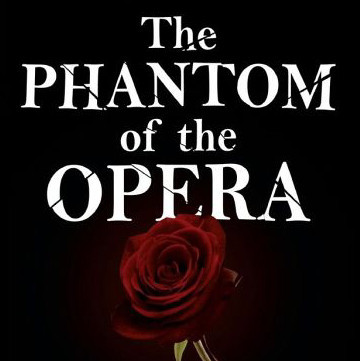
Music has always been an integral part of „The Phantom of the Opera“. Long before Andrew Lloyd Webber came along, Gaston Leroux put together his own „soundtrack“ for his novel and wove it into the story. He was very familiar with opera and often used music as a device of foreshadowing or adding subtext.
I have put together a playlist containing the most important pieces from the novel which can be found here: https://open.spotify.com/playlist/3N3HOQcCzKIH0D4UROxO0N?si=VYjQlsvsQ0OUQZD1dFt0gQ&dl_branch=1
For those who don‘t have Spotify, there are youtube links included as well. The songs are listed in order of appearance in the novel, and I have added a bit of background information for each piece. Enjoy 🌹!
Tracklist
1. „Ouverture“ from „Le roi de Lahore“ by Jules Massenet
In Chapter 1, the body of Joseph Buquet is found hanging from a set piece from „Le roi de Lahore“. Lahore is the capital of the Punjab, a province in what is now Pakistan (formerly India). Buquet was strung up on said set piece using the „punjab“ lasso. In this opera, a young priestess falls in love with the voice of a man who speaks to her in her room without showing himself, and commits suicide at the end to evade a forced marriage to his enemy.
Watch on youtube: https://youtu.be/mFc6_EHqAjk
2. „Danse macabre“ by Camille Saint-Saëns
The famous „Danse Macabre“ is part of the gala night programme. The piece is originally based on a poem by Henri Cazalis and is dominated by a solo violin. Its theme of „dancing with death“ ties in very well with the novel as a whole.
Watch on youtube: https://youtu.be/G-KSTWO5ir0
3. and 4. „Valse Lente“ from „Coppélia“ and „Pizzicato“ from „Sylvia“, both by Léo Delibes
Those pieces are also part of the gala night programme. In the novel, Leroux lists them as the „Pizzicati“ from „Coppélia“ and the „Valse Lente“ from „Sylvia“, but he apparently confused the two ballets, since there are no „Pizzicati“ in „Coppélia“ - but there is a famous Pizzicato in „Sylvia“. „Coppélia“ is a ballet about an automaton magically coming to life.
Watch on youtube: Coppélia: https://youtu.be/sVdf-1rgLzE, Sylvia: https://youtu.be/We7KAkWJow8
5. and 6. „Finale“ from „Roméo et Juliette“ by Charles Gounod (Part 1 + 2)
„Roméo et Juliette“ is the one of the most significant operas used in „Phantom“, together with „Faust“ and „Otello“. The finale is sung by Christine during her triumphant gala night performance. The line quoted („Seigneur! Seigneur! Pardonnez-nous!“) is the very last line of the opera. The intertwined themes of love and death and also the liebestod motif are reflected in Leroux‘s novel.
Watch on youtube: https://youtu.be/SnObknpiPQ0
7. „Vous qui faites l‘endormie“ from „Faust“ by Charles Gounod
When Box Five is sold to the public against Erik‘s wishes, he takes revenge by kindly letting the husband sitting there know that his wife is making out with her lover behind his back, causing a brawl between the two men. To insinuate the wife‘s infidelity, he references several lines from Mephisto‘s aria that is sung on stage at that time.
Watch on youtube: https://youtu.be/LO98x1ASbLM
8. „Lorsqu‘à toi je me suis donnée“ from „La Juive“ by Jacques Fromental Halévy
This part of „La Juive“ is sung and referred to by Madame Giry, while she is questioned about the opera ghost by the managers. However, the first part „Près de celle qui j‘aime“, while being mentioned in the synopsis on wikipedia, seems to be missing from the recordings I was able to find.
Watch on youtube: https://youtu.be/PcnUmYcZxf4
9. „Faites-lui mes aveux“ from „Faust“ by Charles Gounod
During the „cursed“ performance which ends with croaking Carlotta and the fall of the chandelier, Christine plays the role of Siebel, the young man who is Faust‘s rival for the affections of Marguerite (played by Carlotta). She sings this piece - also known as the „flower aria“ - when she suddenly notices Raoul in the audience, and her voice starts to falter.
Watch on youtube: https://youtu.be/zdS6kiWz-g0
10. „Nuit d‘hymenée“ from „Roméo et Juliette“ by Charles Gounod
After the masked ball, when Erik comes to meet Christine in her dressing-room, he sings the „wedding night song“ while he is walking through the secret passages and Christine follows him through the mirror. Originally, this is the song that Romeo and Juliet sing to each other during their wedding night. This is probably the most romantic and erotic duet used in the entire novel. The line „La destinée m‘enchaîne à toi sans retour/Destiny binds me to you forever“ (in Leroux, intentionally or not, given as „you to me“) is repeated three times in the novel, charging it with significance.
Watch on youtube: https://youtu.be/_X8LsHwJXfA
11. „Canzone del salice“ from „Otello“ by Gioachino Rossini
When Erik brings Christine to his house for the first time, he sings for her until she falls asleep, starting with the „Canzone del salice“ from „Otello“ - a lament about the cruelty of love. This aria is originally sung by Desdemona. Due to the introductory harp solo being mentioned by Christine and the story being set before 1885, the piece must be from Rossini‘s „Otello“, not the more famous Verdi opera.
Watch on youtube: https://youtu.be/eHZ6FoKhi2w
12. „Ouverture“ from „Don Giovanni“ by Wolfgang Amadeus Mozart
„Don Giovanni“ is only mentioned by Erik, when Christine asks him to play from his own „Don Juan Triumphant“, as the version he would rather play her instead since his „Don Juan“ is too consuming and would be „unhealthy“ for her. Erik does not seem to hold Mozart‘s version in very high regard.
Watch on youtube: https://youtu.be/3vnu-xOAM-Q
13. „Notte per me funesta“ from „Otello“ by Gioachino Rossini
During the unmasking scene, Christine (as Desdemona) is expecting to be murdered by Otello, and is actually enticed by the idea. Since „Notte per me funesta“ is the dramatic duet that ends with Otello stabbing Desdemona, I assume that this is the duet they are singing in this scene.
Watch on youtube: https://youtu.be/GsV7y5spyQk (this also includes the preceding duets, which were possibly sung as well)
14. „Finale“ from „Faust“ by Charles Gounod
When Erik abducts Christine from the stage, she is singing the final trio from Faust, imploring the angels to take her soul to heaven. The ambiguity of the „angel“ is clearly used here by Leroux, as the „Angel of Music“ is the one taking her away instead. The final trio is preceded by the duet „oui, c‘est moi, je t‘aime“ from the prison scene, which was also used in the Charles Dance version.
Watch on youtube: https://youtu.be/i2C4ezHUF1I
15. „Dies irae“ from „Requiem“ by Wolfgang Amadeus Mozart
Following Philippe‘s death, Erik sings the „Dies irae“ from the requiem mass. It is not certain if the piece is really Mozart‘s, but this requiem was very widely used in funeral masses. The „dies irae“ itself is a chant dating back to medieval times. The „dies irae“ has also been incorporated into Erik‘s bedroom decor in the form of a wall hanging with the notes on it.
Watch on youtube: https://youtu.be/FGqoU9NIjZw
16. „Presago il core della tua condanna“ from „Aida“ by Giuseppe Verdi
This is a bonus track because it is not from the Leroux novel, but from „Phantom“ by Susan Kay. It is one of the pieces that is significant to Erik‘s and Christine‘s relationship. One of the quotes that Christine is buried with is from this duet („Foreseeing your condemnation into this tomb, in your arms I wish to die“).
Watch on youtube: https://youtu.be/FrfORI1BClQ
#phantom of the opera#leroux phantom#phantom music#leroux soundtrack#Original phantom music#Phantom playlist#gaston leroux#the phantom of the opera#erik x christine#leroux erik#erik the phantom#christine daae#le fantôme de l'opéra#the phantom‘s opera#charles gounod#opera ghost#classical music
712 notes
·
View notes
Photo

shizuoka
« [Marguerite]
C’est mon coquin de père
Qui m’égorgea ;
C’est ma catin de mère
Qui me mangea :
Et ma petite sœur la folle
Jeta mes os dans un endroit
Humide et froid,
Et je devins un bel oiseau qui vole,
Vole, vole, vole ! »
( Goethe, Faust I, trad. Gérard de Nerval )
My portfolio: SHIZUOKA
61 notes
·
View notes
Text
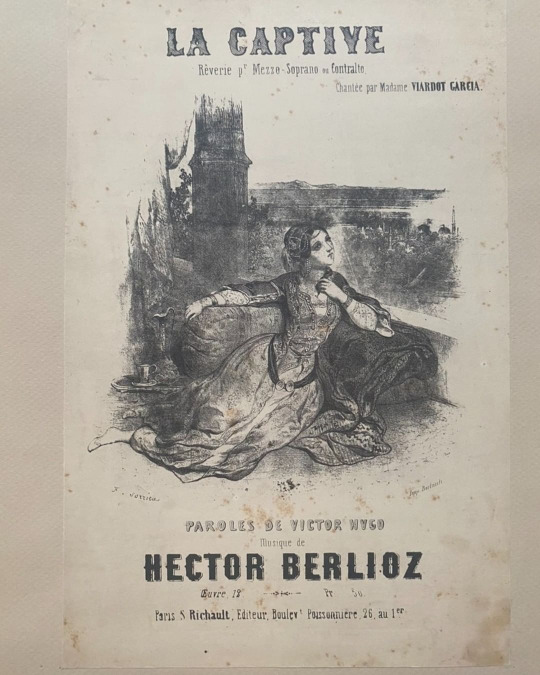
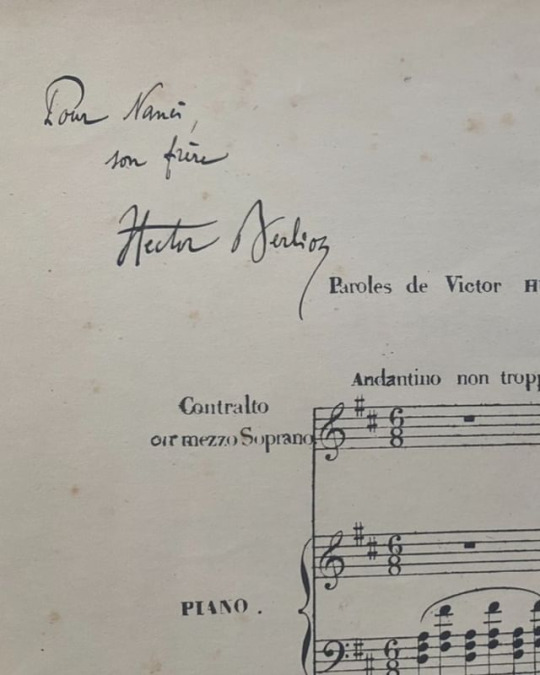
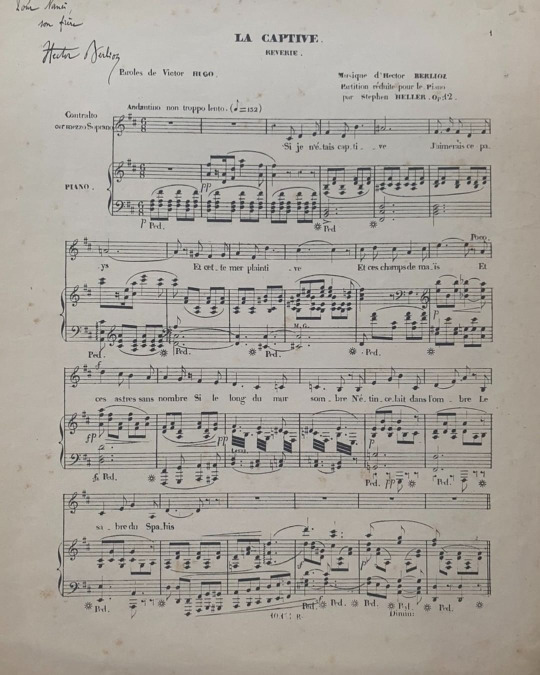
OTD in Music History: Important composer and conductor Hector Berlioz (1803 – 1869) is born in France.
One of the greatest of the early Romantic composers – and the first great composer in history who was *not* really a proficient instrumentalist! – Berlioz only learned a little guitar from his physician father in his early years, and then later studied composition at the Paris Conservatoire (after dropping out of medical school to the dismay of his parents).
His first great score was the famous “Symphonie fantastique” (1830), and his other major works include the operas “Benvenuto Cellini” (1837), “Les Troyens” (1858), and “Beatrice et Benedict” (1862); the program symphonies “Harold en Italy” (1834) and “Romeo et Juliette” (1839); and the choral dramas “La Damnation de Faust” (1846) and “L’Enfance du Christ” (1854).
Berlioz was also one of the greatest music critics in history, as well as one of the most important conductors of his day, and his “Treatise on Orchestration” (1843) is arguably the single most influential work of its kind ever written.
PICTURED: A first edition printed score for Berlioz’s song “La Captive” (originally written in the 1830’s but published in this version for voice and piano in 1850), which he signed and inscribed to his beloved younger sister, Marguerite Anne Louise Berlioz (commonly known as “Nanci”).
Berlioz’s inscription dates for just a few months before Nanci’s premature death at the age of 46; featuring lyrics written by his close friend Victor Hugo (1802 - 1885), “La Captive” was reportedly one of Berlioz’s personal favorites.
#Hector Berlioz#La Captive#composer#Romantic composer#classical composer#Medical student#Romantic music#Classical music#Classical#music history#Romanticism#Romantic era#Romantic period#University of Paris#Opéra-Comique#Opéra#Opéra Paris#Paris Opera#Paris Conservatoire#Conservatoire student#Conservatoire#student#Symphony#sonata#opera#bel canto#English National Opera#Opéra national de Paris#Metropolitan Opera#Mélodies
17 notes
·
View notes
Text
L’île du docteur Faust, Stéphanie Janicot
𝓡𝓮𝓷𝓽𝓻é𝓮 𝓵𝓲𝓽𝓽é𝓻𝓪𝓲𝓻𝓮 2021 • 𝓢𝓸𝓻𝓽𝓲𝓮 𝓵𝓮 18 𝓪𝓸û𝓽

Alors que la nuit tombe, 9 femmes attendent l’arrivée d’un passeur qui doit les mener sur une île au large de la Bretagne. Elles ont toutes été acceptées pour intégrer un programme leur permettant de retrouver leurs vingt ans. Parmi elles, une seule, présente en tant qu’invitée et observatrice, s’est juré de ne pas craquer.
J’ai vraiment beaucoup aimé ce livre ! Il est assez bien écrit et vraiment agréable à lire. Petit plus qui m’a séduite : il est truffé de références à la littérature classique ! Faust de Goethe, Le Maître et Marguerite de Boulgakov (que je finirai par lire un jour), la légende arthurienne, la mythologie grecque, Le Portrait de Dorian Gray d’Oscar Wilde… autant de références, certaines subtiles, d’autres qui viennent avec leurs gros sabots !
En plus de cette réécriture du mythe de Faust (autant appeler un chat un chat), l’autrice aborde une autre thématique en parlant des femmes entre 40 et 60 ans et de leur représentation. C’est un fait, que ce soit dans les livres, les séries ou les films, on ne voit pas beaucoup de vraies femmes de cet âge — souvent, leur rôle est joué par des femmes plus jeunes. Ici, Stéphane Janicot leur rend en quelque sorte hommage.
C’est un roman sur le temps, sur les femmes, sur la vie, c’est une réécriture de Faust, et c’est aussi un roman où l’on peut apercevoir une pointe de « magie » ou de fantastique. En tout cas ça reste un roman très original et très agréable à lire ! Ça change vraiment de ce qu’on peut trouver sur les tables parmi la rentrée littéraire, et c’est rafraîchissant.
22/07/2021 - 23/07/2021
#livres#books#livre#book#littérature#rentrée littéraire 2021#littérature francophone#l’île du docteur faust#stéphanie janicot#albin michel#faust
3 notes
·
View notes
Text
Resurrection
A short account of Christine’s first encounter with the Angel of Music.
Day 1
Christine has no reason to be at the opera house this late in the evening. She has no reason, but she’s here all the same. The massive hallways seem to hold a bit of their old magic, when they are dark and still, and she doesn’t want to give it up just yet.
She doesn’t mind that she’s alone. After all, she doesn’t really believe in the Opera Ghost that the dancers love to whisper about.
She does miss the days when she believed in ghosts. And angels.
And so, after meanderingly tidying up the dancers’ dressing rooms (and leaving sweets for the little ones), she sits on the most battered chair in her own, legs gathered against her chest. She turns her head to study herself in the great mirror — her pale cheek squashed against her knee, her wayward curls shadowing her eyes — looking, almost absently, for traces of her father. They are few and far between. He always told her that she had her mother’s blue eyes and blonde hair and heart-shaped face. But for Christine, motherless (by blood, at least) as long as she can remember, her features might as well have been a stranger’s.
No, the only piece of her father left now is his small, sad smile: the one she’s wearing now.
Suddenly, softly, she begins to sing. It’s a song she hasn’t heard since her childhood, a song that fills her mind with dancing firelight and her father’s violin and Raoul’s little hand clasped in hers. It’s The Resurrection of Lazarus.
“Come and believe in me…”
As the words spill out of her, she thinks of the ghost stories that her father used to tell her, the ones that made her laugh and shiver in equal measure. She thinks of the thrill of hope inside each one, buried beneath the fear.
She thinks of resurrection.
And as she does, something in her voice, tear-rusted for so long, begins to shine again. She gets to her feet as she feels the music inside her like she did so long ago, burning bright as a newborn star, so that with every word she sings, pure light seems to pour from her lips. And Christine, radiant, rapturous, remembers why she loved — loves — music.
She is so consumed by her song, in fact, that it takes her several moments to notice the voice that is singing with her.
She stops singing, and so does the voice, after a heartbeat. Just long enough for her to hear one deep, rich note of a harmony that is definitely not her own.
“Hello?” she calls out, a little too softly.
There is no reply.
She shakes her head and sinks back into her chair. From the corner of her eye, she glimpses the tired girl in the mirror, the one far too old to be imagining things.
Christine has no reason to be at the opera house.
She decides that it’s time to go home.
Day 2
The next day brings another late night at the opera house, and this time she fills it by practicing the prologue of Roméo et Juliette, as she should. The words are rusty nails in her throat, heavy and dead in her mouth, the way they’ve always been since her father’s death. She sings them anyway, listlessly, lifelessly, again and again, almost as a punishment, because for one stupid, shining moment, she had dared to believe in fairy tales.
And then she hears it.
The same tenor voice that seems to come from nowhere, louder than the last time, louder than Christine sings now, and with all the beauty of a star-strewn sky.
But Christine cannot match its beauty today, not when her old happiness feels so far away. She stops singing, and waits for the voice to stop too, to be reassured that she is a little bit mad after all.
But this time, it keeps going. “Like a rosy ray gleaming in a stormy sky…”
Christine doesn’t stay to hear the rest. She seizes a pair of scissors from her bureau and bolts out the door. She glances around the hallway, looking for the stranger who must be playing tricks on her.
It’s empty.
The singing has stopped by now — in fact, she could have sworn it had grown fainter when she left her dressing room — but she has heard enough. With the help of a hairpin, she peers in every dressing room and every broom closet, clenching the scissors in her fist, but finds no one. Of course. She knows that she is alone here, that she was always alone here.
She returns to her dressing room, to the chair in front of the mirror.
“Who are you?” Christine asks, although she seems to speak to her own reflection. It’s the only face she can see. It doesn’t answer, though. It doesn’t even smile.
If the voice intended to harm her, it already had every opportunity. If it took its pleasure in spying on her, she would have seen its prying eyes by now.
If it were playing a joke, certainly it should not have contained so much unearthly sadness.
She stands and turns towards the door, giving up again. But just before Christine touches the handle, she pauses and looks back over her shoulder.
“You don’t have to be afraid of me, you know,” she says to the voice, whatever it might be. “I just think you’re beautiful. That’s all.”
Day 3
By the third evening, Christine no longer doubts her senses. When she walks into her dressing room, she walks lightly, with barely a rustle of her skirts, so that she will not scare the timid voice away. She is still unsure what she will say, even as she closes the door behind her.
But it is the voice that breaks the silence. “Hello.”
Christine gasps and stumbles backward, her back slamming against the doorframe, but she quickly regains her courage. “Hello,” she says, crushing the trembling out of her tone. “My name is Christine.”
“Hello, Christine.”
She doesn’t bother to inquire what or where it is. “I have never heard a voice like yours.”
“Nor I, yours,” says the voice. “But why don’t you always sing like that?”
“What?”
“Two days ago, you sang like an angel. Yesterday, you sang like it pained you.”
Christine’s voice comes out fiercer than she means it to. “It usually does.”
“What made that night different?”
“A resurrection,” she murmurs. Then she clears her throat. “Well, never mind that. To think that you’re asking all the questions, when it’s I who have just discovered a spirit!”
“What would you like to know?”
“How long have you been here?”
“A long time.”
“Do you sing often? In these rooms, I mean.”
“No.”
“Then why—”
“As I said,” the voice cuts in, “I have never heard a voice like yours.”
Christine flushes, just a little. Suddenly, she asks, “Are you very lonely?”
The voice hesitates, for long enough that Christine almost convinces herself that it was never there. At last it says, very softly, “I don’t know.”
“That’s all right,” says Christine, “I know that I am. So you may talk with me anytime you please. Or sing.”
“I thank you, Christine.”
“I shall be here tomorrow evening, then.” She stands and smooths her skirts. “In the meantime, I must be getting home soon. Maman— my patroness frets, you know, and she likes me to read to her a little before she goes to sleep.”
“Very well.”
Christine hovers by the door. “Oh, one thing more.”
“What is it?”
“I can see you don’t like to talk about yourself much. But I promise, you don’t need to worry. I won’t tell anyone here about you. They are already so silly about that Opera Ghost of theirs…”
“You mustn’t believe in such things,” says the voice with a strange intensity.
“Certainly not,” she replies.
“Goodnight, Christine.”
“Goodnight...well, what shall I call you?”
“You can call me a friend, for I can be the best friend you could ask for, if you allow me to be.”
Christine nods once — what else is there to do? — and steps out into the shadow-slivered hallway.
Just before she closes the door behind her, she can hear her friend singing softly. It is another passage from Roméo et Juliette, this time from the Wedding Night Song.
“To thee my destiny is bound forever…”
Despite herself, Christine shivers. Forever is a very long time.
Day 4
That evening, Christine enters the dressing room singing (albeit poorly) because it is easier than speaking. Because ever since her conversation with Madame Valerius last night, she has known what she needs to ask.
“You came,” says the voice, cutting short her hollow, hummed rendition of Marguerite’s “Jewel Song.”
“Of course.” Christine smiles, but lingers in the middle of the room, her hands fluttering at her sides. The voice seems not to notice. It has already picked up where she left off, rendering Faust himself ethereal in its sweet tenor. Christine closes her eyes, feels the music cling to her bones, feels the words bloom in her blood. Feels the icy pit of her stomach melt into raw and reckless hope.
No, there is no doubt about it. This is surely the voice of an…
“Angel?” she says, too sudden, too loud. “Is that you, my Angel of Music?”
The voice falls silent.
On instinct, Christine whirls around, her thin shoulders slicing through the too-empty air. More words tumble out of her in a rush, and the voice lets her speak.
“My father — he’s dead. He died. Four years ago. He was very kind and very sad. He used to sing and play the violin and when he did, every living thing would stop to listen. It was impossible not to love music, then. And he told stories, too. The ones I loved best were about the Angel of Music.
“No one has ever seen the Angel, but he speaks to the hearts of the chosen. He often comes when they least expect it, when they feel downcast and discouraged. Then their ears fill with celestial harmonies, a divine voice, which they remember all their lives. When I was a child, I asked him if he had ever known the Angel, and he said he had not, but that when he was in heaven, he would send the Angel down to me.
“But when I lost my father, I lost my voice as well. By then I knew the true meaning of his story — or I thought I did — and resigned myself to living in a world that had lost its magic, and to continuing to sing, however artlessly and soullessly, and that’s what I have done ever since, until I sang like I used to for a fleeting moment and then I heard your voice, a voice that seemed to come from right beside me, a voice that was kind and strange and beautiful, and, oh God, I miss him, I miss me, who I was, and—”
“Yes.”
The single word, uttered so softly, silences Christine.
“Yes,” the voice says again. “I am your Angel of Music.”
Christine lets go of her skirt (she had been twisting the fabric in her hands as she spoke) and walks to the chair in front of the mirror. She lowers herself into it slowly, as an old woman might. “You came for me.”
“Yes.”
“Papa…”
“Your father loves you very much, Christine,” says the Angel of Music. “That’s why he sent me to you.”
“When I least expected it. When I was downcast and discouraged.” She gives the words the intonation of a prayer.
“I am here now. And I must ask something of you.”
“Anything!”
“I should like to give you singing lessons every day, in your dressing room.”
Christine hesitates, for a moment. “You would do that for me?”
“Yes, for you have proven worthy of me.” The Angel’s voice swells with something new, something a little like a shipwrecking storm. “Whenever you sing, I shall hear you. Wherever you go, I shall follow. And all I require is that you swear to love me, and to love music, too, with everything in you.”
“I swear it,” she replies, bold and breathless.
“Good,” says the Angel of Music.
Christine smiles fiercely as she gets to her feet. “I wish it were tomorrow already, but it’s only tonight, and I must go home.”
“Yes, of course. Your patroness.”
“My mother, really.” She makes her way across the room. “Thank you, Angel, for everything. More than words can express.”
“It’s my pleasure,” he says, and then, “Oh, Christine?”
Framed in the doorway, her eyes full of sky, her cheeks streaked with dawn, happy and whole and alive, for one moment longer, she stands there with the steadiness of a promise. Waiting.
“These night meetings won’t do. Meet me here at seven o’clock tomorrow morning, please, for your lesson. We angels…we angels belong in the light.”
#the phantom of the opera#phantom of the opera#phantom#poto#the phantom of the opera fanfiction#phantom of the opera fanfic#phantom fanfic#poto fanfic#phanfic#gaston leroux#christine daae#christine#erik#the phantom#the angel of music#angel of music
8 notes
·
View notes
Link
Check out this listing I just added to my Poshmark closet: Berlioz La Damnation De Faust Chicago Symphony Orchestra Import CD.
0 notes
Text
Faust (Royal Opera House, 2004): Reactions, Part II



too cute protect him

never noticed this before but the music here is the exact same as when Méphistophélès tells Faust in Act II that Marguerite is protected by God

oh child cherish that excitement while it lasts

is he fantastic or what
(to be completely honest: I never really liked “Salut, demeure chaste et pure” until I heard him sing it)

can I have that outfit ASAP

this is such a sweet song

jackpot

this aria is fantastic and I cannot sing it no matter how hard I try lol

BRAVA!!!


her facial expressions are giving me life

Marthe has her priorities straight

why is it in French opera that people always start talking about their dead loved ones when things get Romantic TM (this also happens in Werther)

double date time

the mood lighting? great
the singers? fantastic
the kiss? beautiful
the ship? mmm...not so much

he loves you not

oh come on you know kissing through bars/a crack/a grate/etc. is one of my favorite tropes

yeah you go leave him

noooooooooooooooooooooooooooooooooooo
6 notes
·
View notes